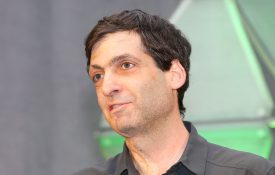-

New Reports Showcase Collaborations Between Governments, Behavioral Scientists
Dozens of collaborations between behavioral scientists and government agencies are on display in two new reports emanating from Washington, D.C. and the United Kingdom. Annual reports from the White House’s nascent Social and Behavioral Sciences
-
Experience Buying and Selling Reduces Financially Costly Biases
When it comes to decisions about buying and selling, businesses are supposed to use evidence and observations about the market for goods to make profitable decisions. In classical economics, it’s assumed that people make financial
-
Cooperation, Fast and Slow
Working together isn’t always easy, especially when a stubborn supervisor or colleague is always putting their own self-interests ahead of what’s best for the group. When cooperation within an organization begins to crumble, productivity, morale
-

The Truth About Lying
Before Dan Ariely launches into explaining the science behind dishonesty, he tells an amusing story: God goes to Sarah and says, “You’re going to have a child.” Sarah laughs and responds, “How can I have
-
Does being paid hourly vs. yearly change how you save?
PBS: The majority of all workers in the United States were paid hourly last year. Typically, hourly wage earners have low incomes and are vulnerable to economic shocks. So we wondered, does being paid hourly
-

Why Driving Lessons Should Go Green
A promising new study shows that a simple behavioral intervention for bus drivers may go a long way towards reducing greenhouse gas emissions.

